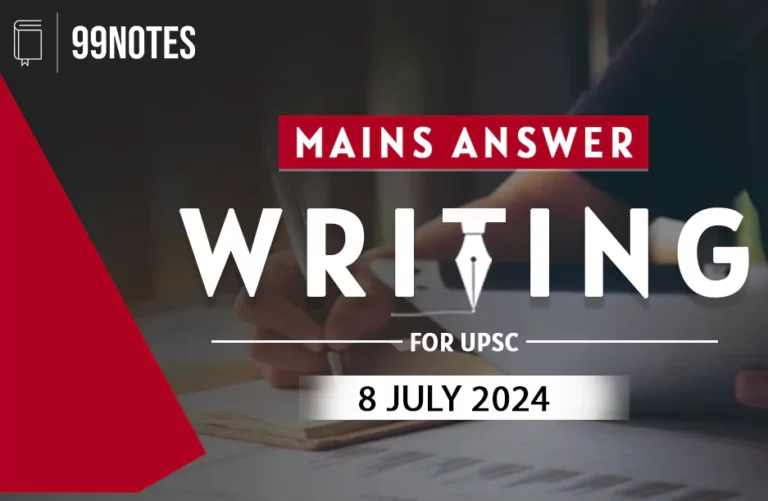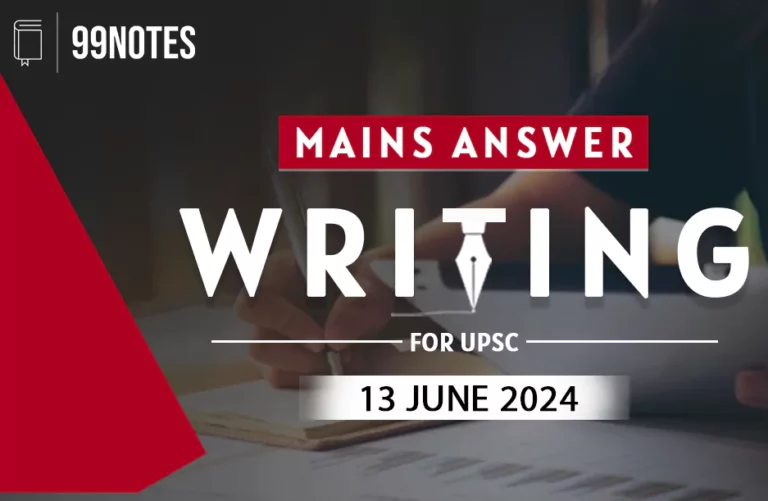26 Feb 2024 : Daily Answer Writing
Q1) “Amidst the clamor of competing interests, the government’s wisdom lies in striking a fine balance, harnessing the energies of pressure groups while staying steadfast in its commitment to uphold the broader public interest.” How do pressure groups influence public affairs? How can the government strike a balance between accommodating the demands of pressure groups while ensuring the overall public interest is upheld?
(250 Words/ 15 Marks)
ANSWER
Pressure groups, also known as interest groups or advocacy groups, are organized entities that represent specific interests, causes, or ideologies within a society. They are formed by individuals, associations, or organizations sharing a common goal or concern and actively seek to influence public affairs and policies, while operating outside the formal structures of government and political parties.
Pressure groups influence public affairs through the following ways:
- Prayers and petitions: They send representations to ministers, discuss issues, and launch legal challenges/ PILs etc. for protection of rights.
E.g., role of organizations like the Naz Foundation and Humsafar Trust in decriminalization of homosexuality in India.
- Protests: Staging protests at state and national levels, strikes or rallies at prominent places has become an effective mechanism for raising issues in public.
E.g., the farmers’ protests in India by organizations like the All-India Kisan Sabha and Bharatiya Kisan Union.
- Propaganda: Pressure groups utilize mass media to educate the public and raise awareness about their causes. Experts and members constantly express their opinions through media, social media, and interviews. Public influencers and celebrities are also used for shaping public opinion.
- Lobbying: Pressure groups attempt to win support of people in power for their cause, such as politicians, bureaucrats etc.
E.g., Business pressure groups like FICCI.
- Electioneering: It refers to support for a favourably disposed person or political party in election to public offices.
E.g., political funding, electoral support etc.
At times, the interests advocated by pressure groups conflict with the broader public interest or government policy. To strike a balance between accommodating pressure groups’ demands and upholding the broader public interest, the government can adopt the following strategies:
- Inclusive policy-making: The government should practice wider engagement by soliciting inputs and incorporating diverse perspectives from a spectrum of pressure groups during the policymaking process.
E.g., formation of expert committees and stakeholder consultations in formulating the National Education Policy 2020 was key to build national consensus.
- Constitutional values: The government must act decisively in interest of social justice and for protection of constitutional values from a regressive agenda.
E.g., social dictates from khaap panchayats that violate constitutional morality or demand for reservation for dominant castes.
- Common good should be prioritized when it seems that broader public interest is not aligned with the demands of specific groups. This is particularly relevant in development projects, where certain environmental pressure groups may seek to halt projects without being sensitive to the country’s developmental needs.
- Long-term interests: Short-term populist measures that may appease specific pressure groups should be balanced with long-term views. Policymakers should conduct rigorous impact assessments based on expert opinions to make informed decisions that balance immediate concerns with long-term sustainability.
- Open dialogue: Actively listening to the grievances and aspirations can help identify potential areas of compromise. The government should encourage open dialogue and negotiation with pressure groups to address their concerns. Close-door engagement should be avoided in interest of transparency.
While pressure groups provide valuable input and feedback to the government over various policy issues, it is the elected government’s responsibility to uphold public interest. Allowing a specific pressure group to hijack the decision-making power of the government should be avoided. Finding a middle ground is the need of the hour.



